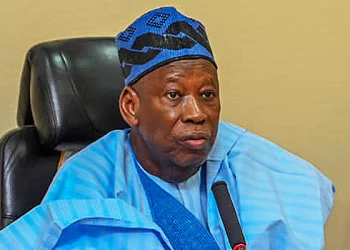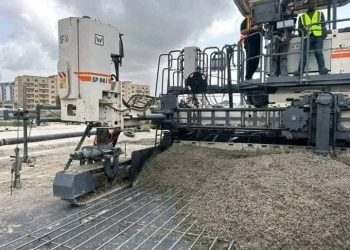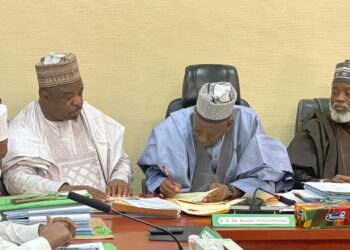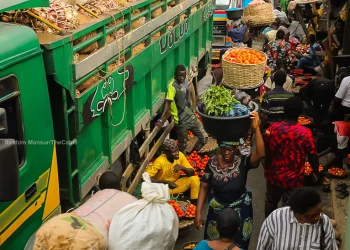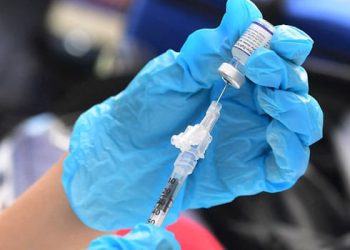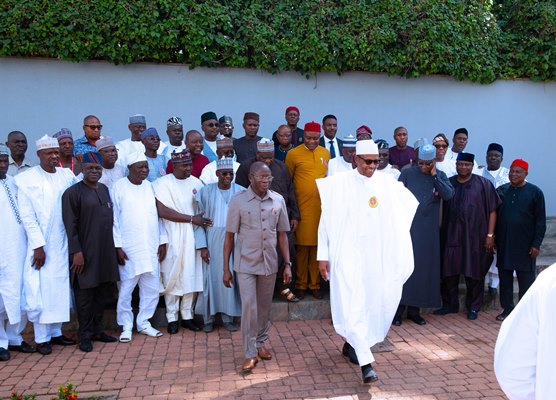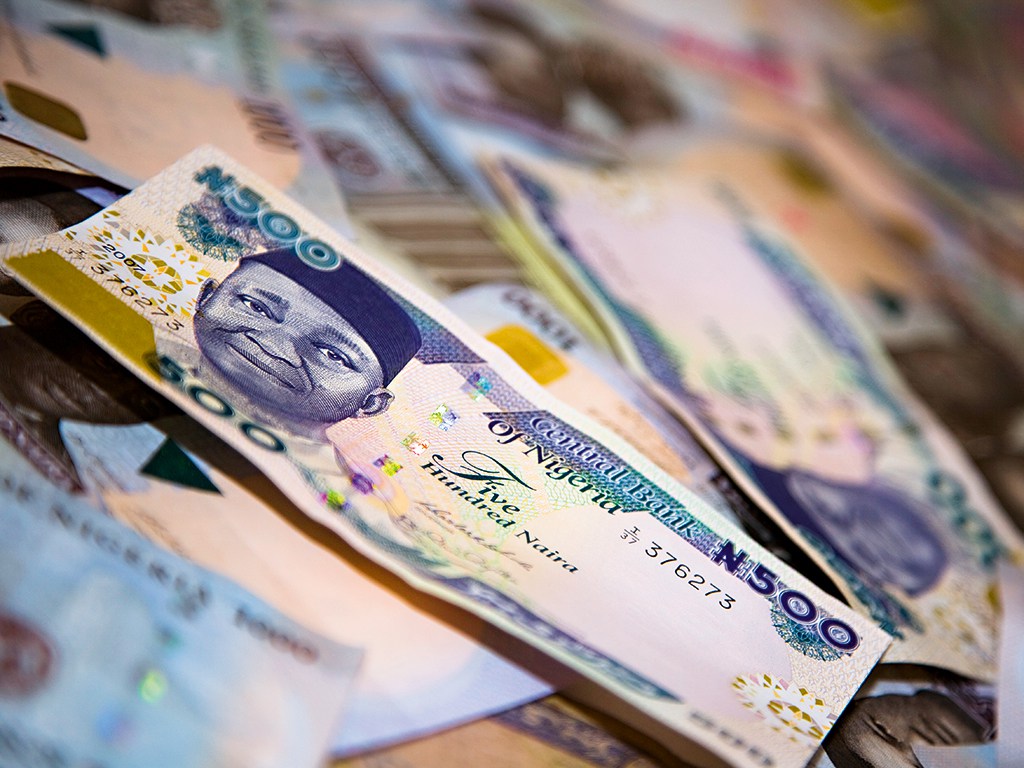
THE NIGERIA ECONOMIC SUSTAINABILITY PLAN
By Mohammed Momoh
The Nigeria Economic Sustainability Plan (NESP), approved by the Federal Executive Council (FEC) on June 24, 2020, was developed by the Economic Sustainability Committee (ESC), established by President Muhammadu Buhari on March 30, 2020.
Chaired by Vice President Yemi Osinbajo, the ESC comprised several Cabinet Ministers as well as the Group Managing Director of the NNPC and the Governor of the Central Bank of Nigeria (CBN).
Terms of Reference included:
– Development of a Plan that responds robustly and appropriately to the challenges posed by the COVID-19 pandemic
– Identification of fiscal measures to enhance oil and non-oil government revenues and reduce non-essential spending,
– Creation of a financial stimulus package for the Nigerian economy,
– Articulation of specific measures to support the 36 States and the FCT, and very importantly,
– Support for MSMEs and the creation of jobs.
The NESP was developed in consultation with Cabinet Ministers, Heads of Federal Agencies, the Presidential Economic Advisory Council (PEAC), State Governors and the National Assembly.
The NESP has been developed as a 12-month, 2.3 Trillion Naira ‘Transit’ Plan between the Economic Recovery and Growth Plan (ERGP) and the successor plan to the ERGP, which is currently in development.
The NESP will be funded as follows:
• 500 billion Naira from Special FGN Accounts
• 1.1 trillion Naira from the CBN in the form of structured lending
• 334 billion Naira from external bilateral/multilateral sources
• 302.9 billion from other funding sources
The design and implementation of the NESP is driven by the following principles:
LOCAL CONTENT AND SELF RELIANCE: The plan promotes local production, local services, local innovation, and the use of local materials, in line with the Mandate of Presidential Executive Order 5 of 2017, on the Promotion of Nigerian Content in Contracts and Science, Engineering and Technology, and also based on President Buhari’s mantra to “produce what we eat and consume what we produce.”
ECONOMIC STIMULATION: Ensuring liquidity, preventing business collapse, and staving off the worst impact of a potential recession.
JOB PRESERVATION AND CREATION: The NESP recommends carrying labour intensive programmes in key areas like housing, roads, agriculture, facility maintenance, and direct labour interventions – all heavily utilising local materials.
PRO-POOR/VULNERABLE FOCUS: The NESP will extend protection to vulnerable groups, including women, and persons living with disabilities. It will also cater to the sectors of the economy that have been worst hit by the pandemic.
HIGHLIGHTS OF KEY INTERVENTIONS
1. MASS AGRICULTURAL PROGRAMME (MAP).
The Plan intends to ensure the cultivation of between 20,000 and 100,000 hectares of new farmland in every State, as well as support offtake and agro-processing, with low-interest credit. This will create millions of direct and indirect job opportunities.
2. INFRASTRUCTURE
a. EXTENSIVE PUBLIC WORKS AND ROAD CONSTRUCTION PROGRAMME
A minimum of 1,000 young Nigerians will be recruited per local government into what will be the largest public works programme in the history of Nigeria, amounting to 774,000 direct jobs. There will also be extensive focus on the construction and repair of major and rural roads using locally available materials like limestone, cement and granite. The roads component will include the acceleration and expansion of scope of the Road Infrastructure Tax Credit Scheme (RITCS).
b. MASS HOUSING PROGRAMME (MHP)
MHP will deliver up to 300,000 homes every year. Young professionals and artisans will organise themselves into small and medium scale co-operative businesses within the construction industry to develop these houses, which will be based on a set of standardized designs. This programme will also prioritize the use of local labour and materials. Doors, windows and other materials will be produced, finished or assembled at mass housing construction sites.
c. INSTALLATION OF SOLAR HOME SYSTEM (SHS)
This targets 5 million households, serving about 25 million individual Nigerians who are currently not connected to the National Grid. Solar equipment manufacturers will be required to set up production facilities in Nigeria, to provide the materials required.
d. INVESTMENT IN HEALTHCARE INFRASTRUCTURE
This will be done through a special intervention fund, as well as by tapping into an existing World Bank facility (REDISSE Programme), to support COVID-19 interventions in the States.
3. INFORMAL SECTOR SUPPORT
This will take the form of low-interest loans, and the easing of procedures for registration, licensing, obtaining permits, etc. Mechanics, tailors, artisans, petty traders and all other informal business people will be supported to grow their businesses.
4. BUSINESS SUPPORT FOR MSMEs
This will take the form of payroll support to designated sectors so that they can keep their employees and help maintain jobs; and also loan restructuring and moratorium for existing debt. Also, low-interest loans to boost local manufacturing and production across critical sectors, including but not limited to the pharmaceutical, aviation, hotels and the hospitality industry, private schools, road transportation, technology companies, and the creative industry, amongst others. A Guaranteed Offtake Scheme for MSMEs will function by making government a key purchaser of specific priority products made by MSMEs, like PPE, face masks, face-shields, processed food, pharmaceuticals, etc.
5. TECHNOLOGY
Underpinning the implementation of the NESP will be a focus on digital identification of every Nigerian. It is imperative that every Nigerian has a unique digital identity. The Public Works Programmes for example will, apart from the focus on providing employment, also help advance the financial inclusion and digital identification agenda. Broadband connectivity will also receive a boost, helping to create jobs and opportunities especially for young people. Also, a national programme will be launched to identify and create job opportunities in digital outsourcing.
6. EXPANSION OF THE NATIONAL SOCIAL INVESTMENT PROGRAMMES
The implementation of the NESP will see an increase in the number of cash transfer beneficiaries, N-Power volunteers and sundry traders enjoying small and micro loans through the MarketMoni and TraderMoni schemes. The pre-existing conditional cash transfer will also be extended to cover a larger number of extremely poor and vulnerable Nigerians.
7. CUT NON-ESSENTIAL SPENDING
The President has approved the implementation of the Report on the Rationalization of government agencies. The NESP will also target a reduction in average production costs of crude oil. Also, the Integrated Personnel and Payment Information System (IPPIS) will be expanded to cover all Federal Government MDAs. Non-critical and administrative capital spending will be eliminated, including purchase of vehicles (except for ambulances, fire-fighting vehicles and other essentials).
8. SUPPORT FOR STATE GOVERNMENTS
The NESP offers opportunities for State Governments to collaborate with the Federal Government on Affordable Mass Housing, Agriculture, Off-Grid Power Projects and other projects in the Plan. It also provides for the negotiation of suspension of ISPO payments by States, moratorium on deductions in respect of bailout loans, and encourages States to attain the conditions outlined by SIFTAS and other World Bank programmes, in order to access external support.
The ESC will also monitor implementation of the Plan while the Vice President will regularly brief the President on progress made.


